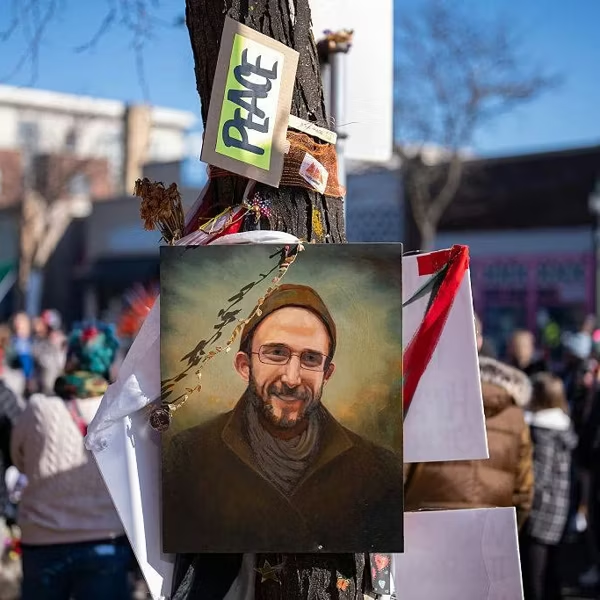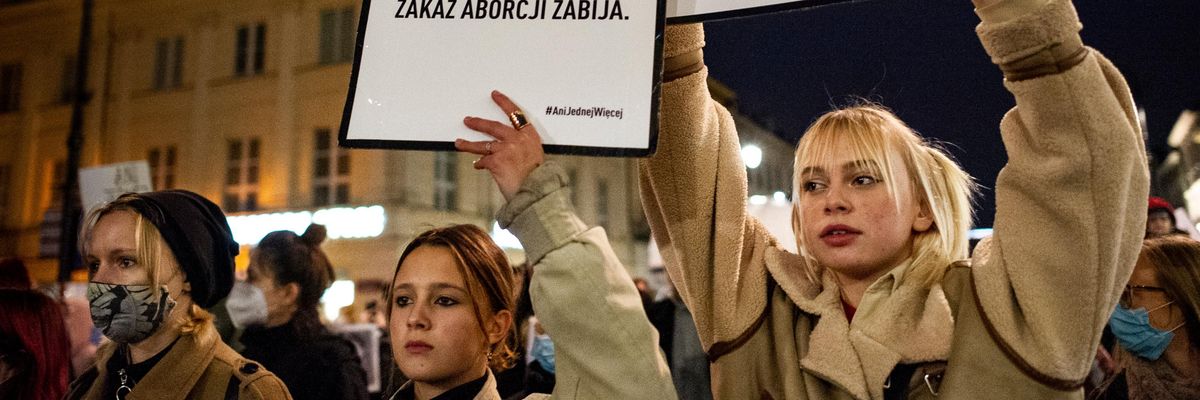OpenDemocracy asked me, as a Pole and the author of a book about abortion, to describe what it's like to live in a country with restricted reproductive rights.
In short: it's lonely, humiliating, dangerous to life and health, and it undermines the rule of law. And it's expensive.
I fear that Texans, Mississippians and--if the US Supreme Court overthrows Roe v Wade--Americans in all Republican-controlled states are in for a similar ordeal. Banning abortion has never made it disappear. Instead, it invariably leads to unwanted pregnancies being outsourced elsewhere, discrimination against people on low incomes, and unnecessary suffering.
The abortion self-help network--in Poland, Abortion Without Borders--is invaluable in this situation, but it will not solve the basic problem. Only legislative change can make abortion legal, safe and financially affordable.
Izabela's story
Izabela was 22 weeks pregnant when her waters broke. At this stage, the chances of the foetus surviving were minimal, but the risk of infection increased every hour. Izabela was hospitalised with a fever, but the doctors told her that her pregnancy couldn't be terminated. The law forbade it.
"For now, thanks to the abortion law, I have to lie down. And there is nothing they can do. They have to wait for the heart to stop beating. My fever is growing," she told her mother.
Just 24 hours after being admitted to the hospital, Izabela died of sepsis. She was 30 years old.
This is not a story from the 1950s. Izabela died on 22 September in Pszczyna, a small town in Poland. Her death was tragic, senseless and cruel, and the result of three decades of a near-total ban on abortion, alongside relentless propaganda from the Catholic church and doctors' willingness to risk patients' lives rather than terminate their pregnancies.
Izabela was not the first victim of both the law and doctors' inaction. In 2004, Agata Lamczak died after she was refused treatment because it could harm her "unborn child". In 2000, Alicja Tysiac was forced to give birth despite severe myopia and a referral for an abortion due to the danger to her health; her eyesight deteriorated further. In 2008, two hospitals refused an abortion to a 14-year-old rape victim, and she was only permitted to terminate the pregnancy after a government minister intervened.
In 2014, Agnieszka (a pseudonym) had to give birth to a child with acrania--with half its skull missing--because the doctor delayed the diagnosis until it was too late to have an abortion. His conscience, you see, wouldn't allow him to terminate the pregnancy. It did, however, allow him to force the patient to watch her baby's brain rot for ten days until the infant's inevitable death.
The history of abortion in Poland
Abortion on demand was legalised in Poland in 1956. And because contraception in the People's Republic was either inaccessible or unreliable, abortion was treated as a form of birth control and wasn't particularly controversial.
This changed in 1989, after the collapse of the Eastern bloc. Politicians from Solidarity (Solidarnosc), supported by the Catholic Church, came to power, and the language around abortion changed immediately: within a year it became "killing the unborn".
In 1993, parliament passed the so-called 'abortion compromise'. This law bans abortion, but with three exceptions: if the pregnancy threatens the life or health of the woman, in cases of rape or incest, and in cases of severe or fatal foetal abnormality.
Even these exceptions have been difficult to enforce. Poland hasn't had its own George Tiller or Henry Morgentaler--gynaecologists who terminated pregnancies because they considered it the right thing to do, even when it was illegal or endangered their own life. In fact, doctors are known to restrict access to abortion.




